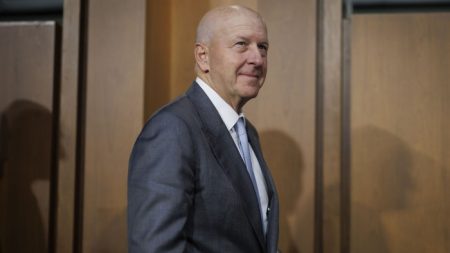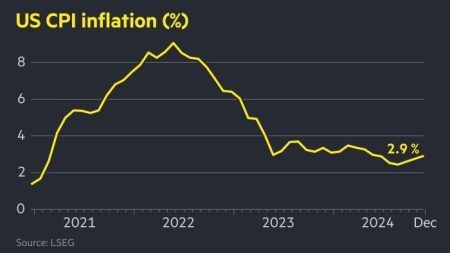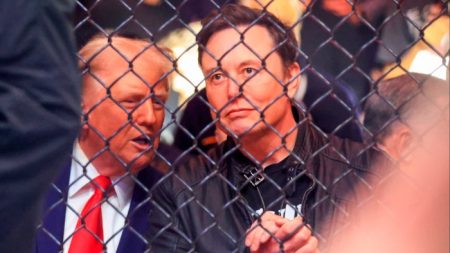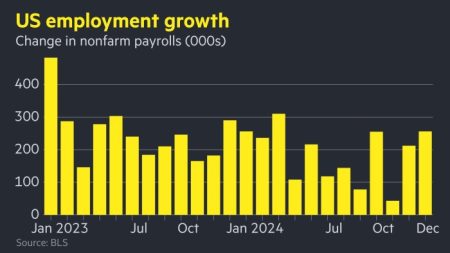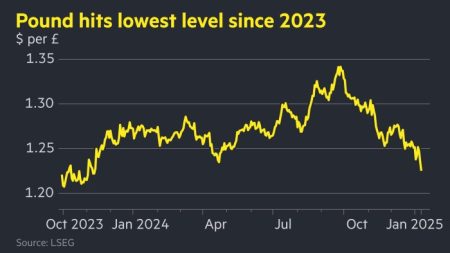Unlock the White House Watch newsletter for free
Your guide to what the 2024 US election means for Washington and the world
Nippon Steel and US Steel have filed two lawsuits in the US alleging “wrongful interference” after the proposed $15bn combination between the steelmakers was blocked by President Joe Biden just days earlier.
In a statement on Monday, the companies said that the first suit asked for Biden’s decision to be set aside because of “unlawful political interference” in the process.
The second suit was filed against rival steel producer Cleveland-Cliffs, its chief executive Lourenco Goncalves and United Steelworkers president David McCall, alleging “illegal and co-ordinated actions aimed at preventing the transaction”.
“Today’s legal actions demonstrate Nippon Steel’s and US Steel’s continued commitment to completing the transaction,” the companies said in the statement.
The legal claims mark the latest twist in a takeover saga that has put the US-Japan relationship under considerable strain, heralded a new hostility in the US investment climate and thrown into question the independence of America’s national security investment screening mechanism.
In an order issued on Friday blocking the deal, Biden said there was “credible evidence” that, through the acquisition, Nippon might take steps that would hurt US security.
Through the lawsuits, Nippon and US Steel aim to establish that Biden “ignored the rule of law” to gain favour with the unions and support his political agenda and that the Committee on Foreign Investment in the US (Cfius), which screens overseas buyers of US companies, failed to conduct a review in good faith.
The Cfius process was intended to reach a “pre-determined result” after Biden outlined his opposition to the transaction in March, before any security review had taken place, the companies added.
They also aimed to show that US rival Cleveland-Cliffs sought to prevent any other buyer from acquiring US Steel as “part of a broader illegal campaign to monopolise the domestic steel markets”.
Cleveland-Cliffs, a rival US steelmaker, made an unsolicited offer to buy US Steel in July 2023, after which a broader auction was held which Nippon came out on top of.
USW’s McCall said on Monday: “By blocking Nippon Steel’s attempt to acquire US Steel, the Biden administration protected vital US interests, safeguarded our national security and helped preserve a domestic steel industry that underpins our country’s critical supply chains.” He added that the union was “reviewing the complaint and will vigorously defend against these baseless allegations”.
Cleveland-Cliffs did not immediately respond to a request for comment.
The legal action came after Biden vetoed the deal in light of Cfius failing to reach consensus on whether the deal posed a national security threat.
Nippon made extensive efforts to address those concerns by promising to invest $2.7bn to modernise facilities and guaranteeing no production capacity cuts at most sites for 10 years without US government approval.
Biden’s decision to call off Nippon’s takeover of the iconic US rival threatens to trigger turmoil for the alliance and business relations with the US’s most important partner in east Asia and biggest inbound investor.
Japan’s Prime Minister Shigeru Ishiba warned in a press conference on Monday that the US needed to explain more clearly why there were security concerns and said that its obstruction had sent a chilling message to prospective Japanese investors in the US.
“It is unfortunate that concerned voices are being raised within the Japanese industrial sector about future investment in the US,” he said. “We cannot help but take these concerns seriously and we strongly urge the US government to dispel these concerns.”
US presidents have vetoed eight other takeover deals following reviews by Cfius since 1990, according to the Congressional Research Service, but none by a Japanese company until last week.
There is precedent for the US government being embroiled in a legal battle following the president blocking a takeover deal.
In 2015, Chinese-owned Ralls won a settlement after claiming the US government violated due process when it was ordered to divest four wind farms near a military base in Oregon following a Cfius review.
Read the full article here




